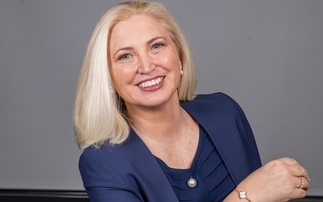No company entered the pandemic with a detailed blueprint on how to respond. There were no documents in the top drawer titled ‘Do this if Covid-19 happens'. Yet some companies acted with remarkable speed when the pandemic arrived, managing not only to protect their own business activities, but also to provide support to employees, customers and suppliers. In doing so, they exemplified the ‘S' of environmental, social and governance (ESG) considerations, and demonstrated the part it plays in making a business more resilient to external events.
Two examples are L'Oréal and Danone. Both companies were already working closely with their stakeholders to deliver ambitious sustainability targets, and these relationships helped them to respond swiftly to the crisis. Several months on, both companies have gained market share in key areas of their businesses, and their experiences lend weight to the idea that a strong focus on sustainability is an indicator of board and management quality.
In other words, Covid-19 has revealed another reason for investors to pay close attention to a company's actions on sustainability: companies that do well on sustainability criteria are likely to be more resilient than those that do not when an unexpected crisis occurs.
Salons and suppliers: How L'Oréal supported its external stakeholders
On 18 March, L'Oréal announced what it called ‘a Europe-wide coronavirus solidarity programme'. The aim was to support its stakeholders in the fight against Covid-19. The measures taken by L'Oréal included shortening payment times for close to 9,000 suppliers exposed to the crisis, and freezing payments receivable for all very small enterprises (VSEs) and small and medium-sized enterprises (SMEs) in its distribution network. The latter measure has helped ease financial pressure on more than 100,000 hair salons, small perfume shops and other similar small businesses.
Danone supported 15,000 of its SME business partners
Danone is a leading member of the Business for Inclusive Growth (B4IG) coalition, launched in August last year. B4IG, whose board is chaired by Danone's CEO, aims to advance human rights in direct operations and supply chains, build inclusive workplaces, and strengthen inclusion in value chains and business ecosystems.
Following the onset of the pandemic, B4IG announced a collective package worth €38 billion to support its members' employees, communities, clients and suppliers. This included €300 million from Danone to support 15,000 of its small and medium-sized business partners.
Unilever too supported customers and suppliers
Unilever represents a third example of a company that acted quickly to help external stakeholders. While some of Unilever's channels and categories were adversely affected by lockdown restrictions, the overall nature of its business is arguably better suited than most to this particular crisis, since many of its products can be enjoyed at home and bought online.
Nonetheless, the company wasted no time in identifying the areas of in its value chain that needed assistance, providing €500 million of cash flow relief to customers and suppliers. This took the form of early payments to its most vulnerable small and medium-sized suppliers, and an extension of credit to selected small-scale retail customers to help them protect jobs and keep their businesses running.
A focus on sustainability helps promote resilience
All of these companies already had a well-developed appreciation of their broader social responsibilities before the Covid-19 crisis hit. As a result, in addition to supporting their employees and undertaking social initiatives like providing free hand sanitiser or soap, these companies instinctively recognised the threat to their value chains, and were able to move quickly to meet it. In doing so, they further cemented their market positions and brand strength.
L'Oréal, Danone and Unilever all hold an ‘A' rating under Fidelity's proprietary ESG rating system. Earlier this year, we published research into how companies with higher and lower Fidelity ESG ratings performed during the sell-off in February and March, the first broad-based market crash of the sustainable investing era.
We found a strong positive correlation between a company's relative market performance and its ESG rating, with ESG leaders outperforming laggards across asset classes. Good sustainability credentials proved to be an indicator of quality and effective leadership, as well as of greater resilience to market fluctuations. As a result, ESG characteristics look set to become even more important for assessing a company's readiness for the future, whatever that future may look like.
Important information
This content is for investment professionals only and should not be relied upon by private investors.
This information is for investment professionals only and should not be relied upon by private investors. Past performance is not a reliable indicator of future returns. Investors should note that the views expressed may no longer be current and may have already been acted upon. A focus on securities of companies which maintain strong environmental, social and governance (ESG) credentials may result in a return that at times compares unfavourably to the broader market. No representation nor warranty is made with respect to the fairness, accuracy or completeness of such credentials. The status of a security's ESG credentials can change over time. Changes in currency exchange rates may affect the value of investments in overseas markets. Reference in this document to specific securities should not be interpreted as a recommendation to buy or sell these securities, but is included for the purposes of illustration only. Investments should be made on the basis of the current prospectus, which is available along with the Key Investor Information Document and current and semi-annual reports, free of charge on request, by calling 0800 368 1732. Issued by Financial Administration Services Limited and FIL Pensions Management, authorised and regulated by the Financial Conduct Authority. Fidelity, Fidelity International, the Fidelity International logo and F symbol are trademarks of FIL Limited. UKM1120/32511/SSO/NA













